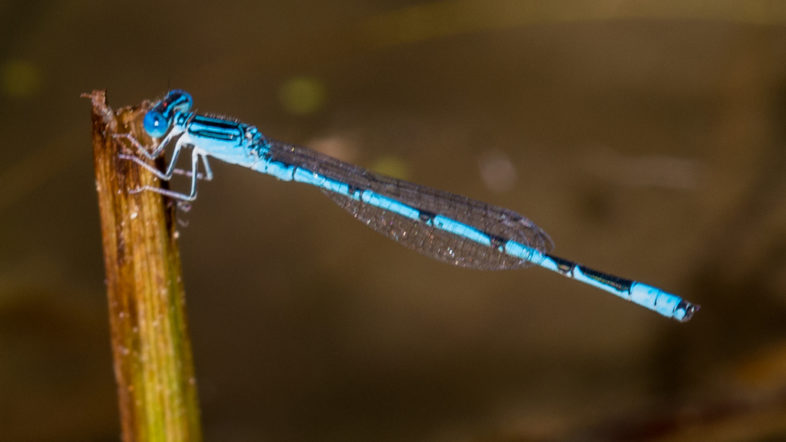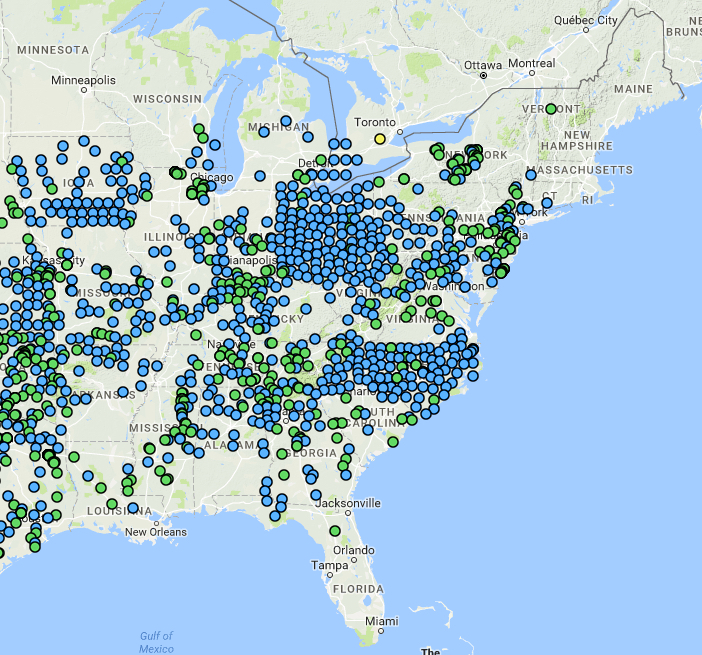New Damselfly Species Found in Vermont

Double-striped Bluet found and photographed by Joshua LIncoln is the first state record for this species in Vermont.
It was a routine warm September day in the field for naturalist Joshua Lincoln. Wandering along the Waterbury Reservoir shoreline, his net was swiping at mostly Darners – recording Lance-tipped, Lake, and Shadow darners with his camera before releasing them. He stalked a pair of Orange Bluet damselflies to photograph. Thirty minutes later, he captured several closeup images of a blue damselfly perched on vegetation, a group that is notoriously hard to identify.
“I didn’t have my glasses on,” explained Lincoln. “Usually I can get a good enough photos to identify bluets that are perched, from their terminal appendages, when I get home. So I concentrate on getting good photos to identify when I download them. I was completely surprised when I saw my photos.”
He had found Vermont’s first state record of Double-striped Bluet (Enallagma basidens) and added it to iNaturalist Vermont for the Vermont Damselfly and Dragonfly Atlas at the Vermont Atlas of Life (VAL), where others quickly confirmed his identification.
According to Odonata Central, the online database where VAL stores all of Vermont dragonfly and damselfly data, its range has expanded to the west, north and east, now reaching as far as Florida and the Carolinas. In the northeast, it was first reported from Canada in southwestern Ontario in 1985 and expanded into central New York, and now Vermont.

The new Vermont record of Double-striped Bluet is the farthest record to the Northeast. Click on map to view it on Odonata Central and explore the data.
Double-striped Bluet is one of our smallest bluets. The thin pale stripe that longitudinally divides the dark humeral stripe, giving the species its name, is distinctive among all Dancers (Argia) and Bluets here. They prefer ponds, lakes and reservoirs as well as slow reaches of streams and rivers. Will we find more of them next year? Will they expand further into Vermont? Naturalists like Joshua Lincoln will be out again next searching this species and others helping all of us learn about our natural heritage. You can help too. Add your biodiversity observations to one of the VAL crowd-sourced databases, like iNaturalist Vermont, and join hundreds of other Vermont naturalists in our quest.






